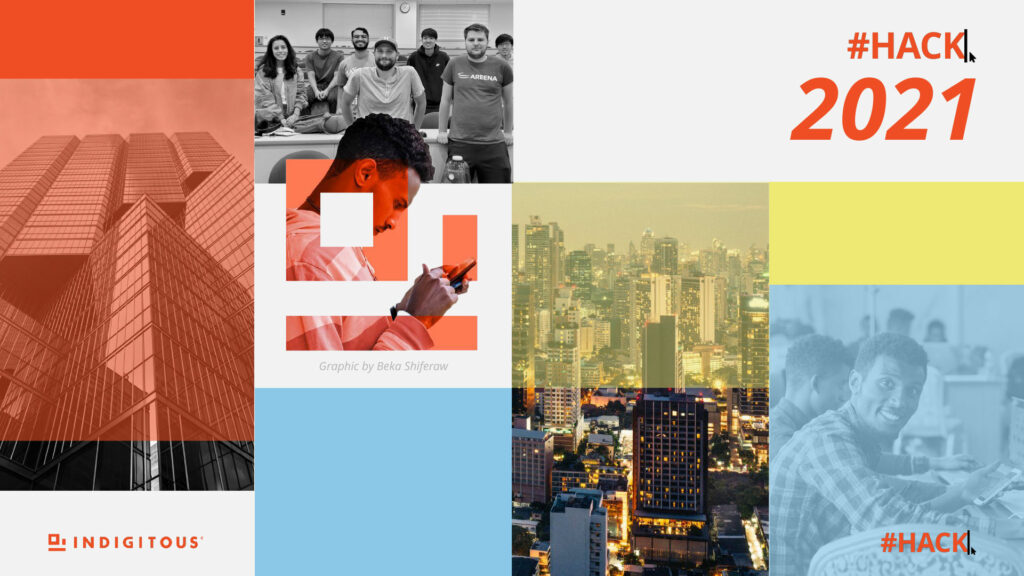At #HACK2021 participants from around the world in the tech, creative, and adjacent industries gathered to solve problems facing their communities.

#HACK2021 Numbers
- 1,253 Participants
- 115 Locations
- 46 countries
- 65+ Projects
Auckland, New Zealand
A team in New Zealand created an Augmented Reality (AR) experience for a local church’s Christmas drive-through service, so people who visit can get an enhanced worship experience.
Melbourne, New Zealand
Only a fraction of 1% of missions spending goes to unreached people groups. How can a missionary in Bangladesh raise support when there are only a handful of believers in his city?
Teams in Melbourne and Sydney collaborated to create a trusted network for connecting ministry workers to supporters. The platform connects trusted users to each other through a chain of network connections. Through these connections, donors can engage with workers they would not otherwise have access to. Workers can find ministry support from those they would normally not have contact with. Ministry funding and support can be targeted to where it is needed most.
“By building these trusted networks and connections, we facilitate more pathways to connect those in the harvest with those wanting to support them,” says city lead Joshua Montzka.
[WINNER: Completeness]
Austin, USA
The Journey App is an interactive Bible curriculum designed to encourage and support discipleship relationships between those with a relationship with Christ and those within the “movable middle.”
The app provides users a multi-step journey that culminates in connection with a mentor and community of believers, becoming a disciple-maker, and more. The app is intended to make it easier to lead someone through Scripture and disciple them.
[WINNER: Viability]
Austin, USA
Participants across North America collaborated online on a different solution to the same problem. They created an interactive map experience to answer the questions non-Christians and nominal Christians have when they search online. Through storytelling, a few supplemental videos, articles, and Scriptures, the map is designed to direct and increase their engagement with the Bible.
Buenos Aires, Argentina
A group in #HACK Argentina worked on a series of seven videos intended to lead people who received Christ online into the next steps of their spiritual journey, including joining a spiritual community and joining a local church. Meanwhile, another team worked on a program to prevent suicidal tendencies online.
Panama
Began at #HACK2019, Yo Quien Soy uses a temperament quiz. People who take the quiz are given results about their own identity. That is connected with the Gospel by showing, through clips from the JESUS film, how Jesus embodies the perfect model of that temperament. Users get to know more about themselves, see how Jesus is like them, and see a relevant Gospel presentation.
“People are in a constant search, wanting to know who they are, their reason for existing, and how they can improve aspects of their character,” says city lead Selegna Diaz. “This is an opportunity to share who they are, but from a Biblical perspective.”
[WINNER: Top Overall Project, Kingdom Impact]
London, UK
The Prayer Walk App was originally conceived to track prayer walking in the city of Coventry, England, with the goal of covering every street in the city with prayer. During #HACK2021, participants expanded that focus to the entire UK.
Users are able to log into the web application, earmark a road, and then mark it as complete as they walk the road and pray for those on it. Using a Strava-style heat map, users can see what streets have been prayed for and view the overall prayer activity of the city.
“The app has already had a great impact,” says #HACK London city lead James Doc. “It encourages more people to pray for their neighborhoods and communities. I’ve heard people become more aware of the needs of where they live and gain deeper compassion for it.”
Kampala, Uganda
Participants in Uganda helped create an automated digital version of a program that LIFE Ministry Uganda uses to train disciples to build spiritual movements of multiplying disciples. The training has traditionally been done in person in a classroom setting, which hasn’t been possible since the pandemic hit. Over the #HACK weekend, participants created a digitally automated version of the program to help scale the training.
[WINNER: Innovation]
Addis Ababa, Ethiopia
Dvash, the Hebrew word for “honey,” appears in the Bible 55 times. The Dvash app was created to make it easy to read, study, and understand the Bible as well as share it on your mobile device in multiple languages.
Music has the ability to evoke powerful emotional responses. It can alter moods, relieve stress, and create a more peaceful and positive experience. The Dvash app is a platform that pairs condensed articles and Bible verses with music to help people discover, understand, and engage with Scripture better.
Philippines
Participants in the Philippines sought to better understand Filipino young professionals and offer them opportunities that support their individual callings. To accomplish that, they created a mobile app that collects relevant data from young professionals and helps them connect and engage with people and organizations in partnership with GoBeyond. Through an assessment of their skills and interests, they’re added to groups where they can support each other and find ways to contribute to the community.
Singapore
A team in Singapore created a central platform for sharing resources across churches and missionaries. It’s a secure, user-friendly shared database with security to protect users through authentication and screening.
The platform encourages churches to not be siloed, instead of working together to share digital resources across countries and denominations. It also encourages content creators to share content relevant to their country and culture while ensuring their safety.